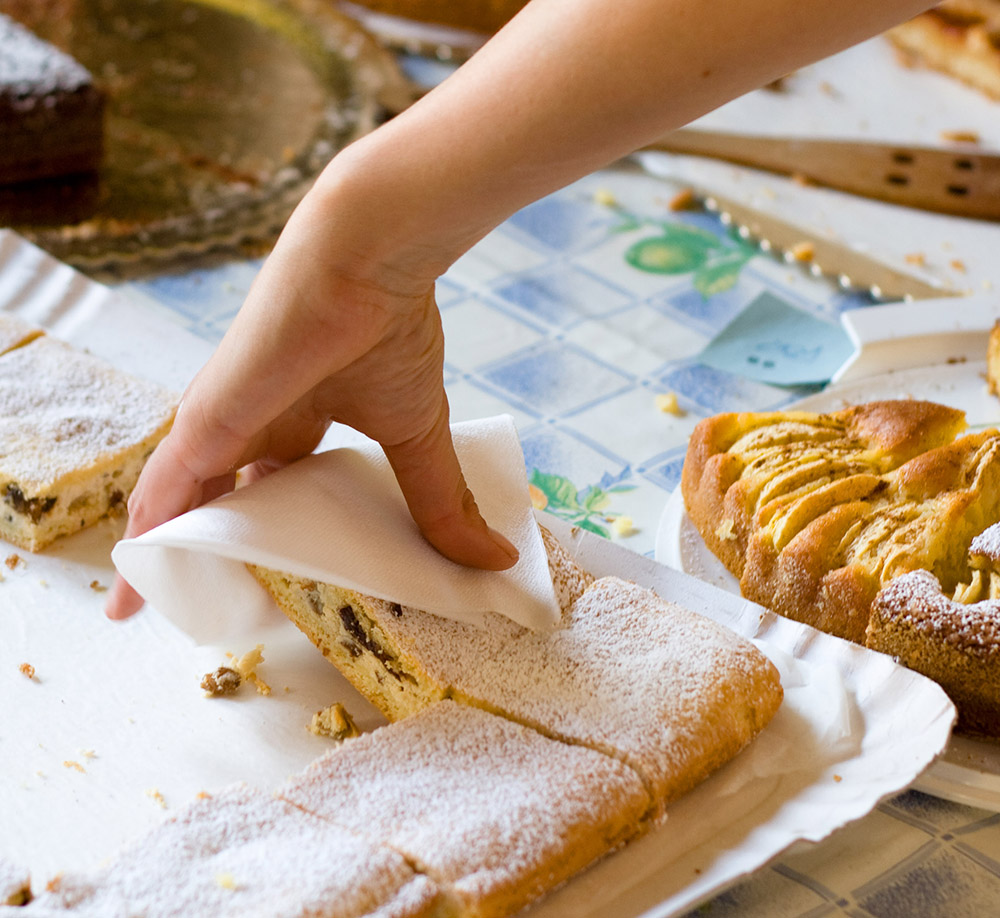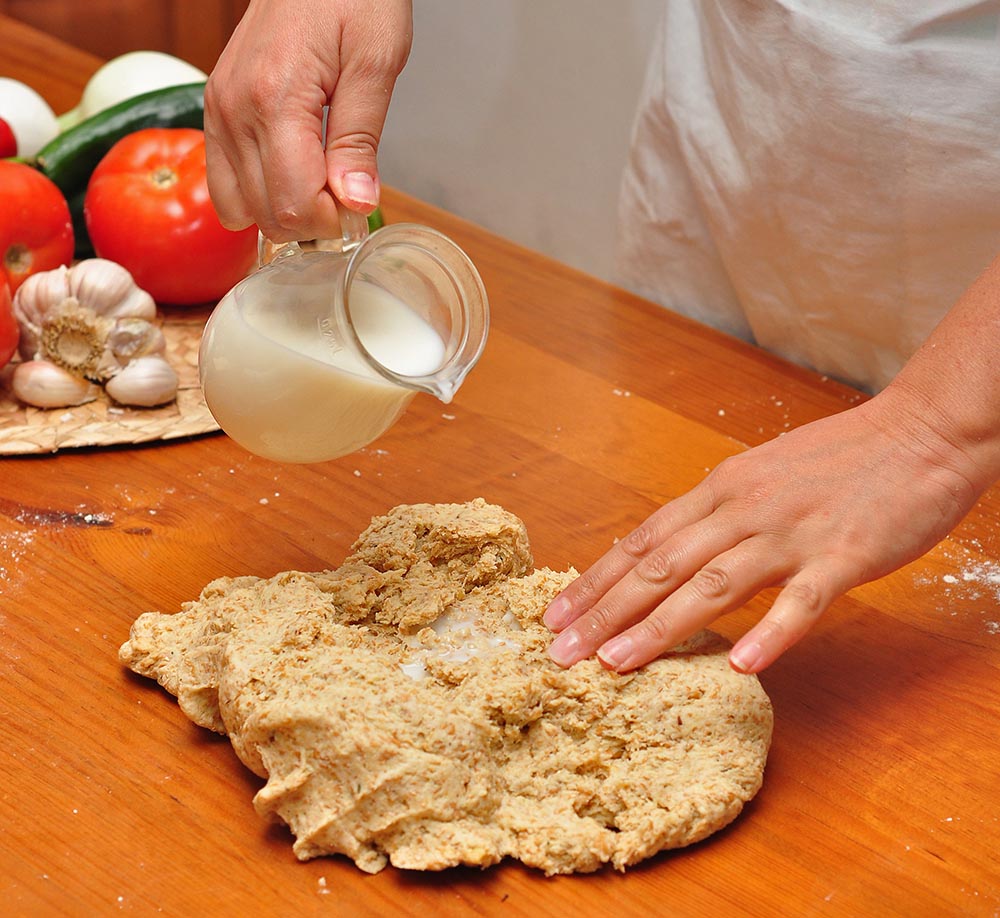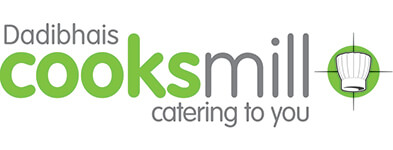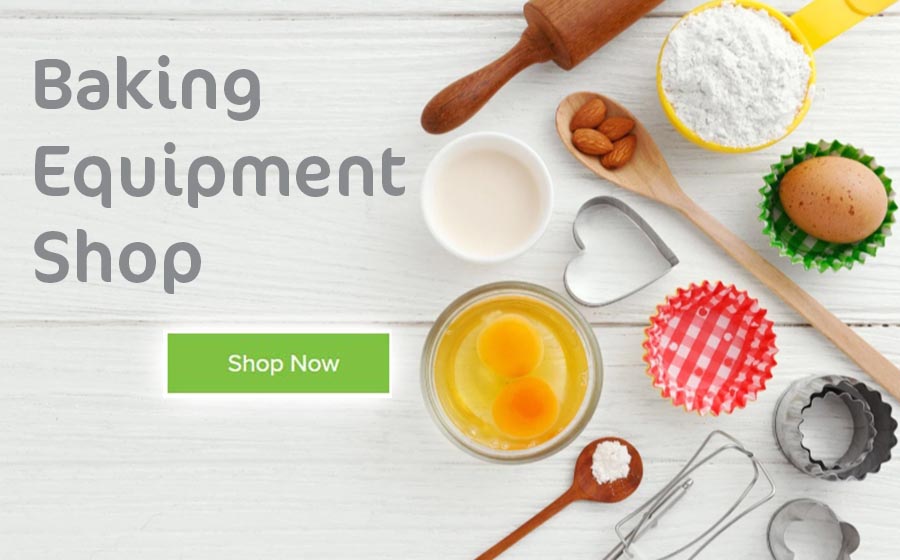Baking is a science and an art form rolled into one. You have to be precise, but you also have to let go and allow the process to unfold. Baking can seem intimidating to the beginner baker, but with the right ingredients and equipment, plus some simple techniques like measuring correctly (and often), you'll be whipping up batches of delicious treats in no time! In this article, we’ll go over some of the basics of baking so that even beginners can create some beautiful bakes in no time at all.
The basics of baking, a beginner's guide.

Learn baking the lingo
Before you start baking, it's important to know the lingo. Baking is a science, and understanding the chemistry of your ingredients can help you make adjustments for different textures and flavours in your finished product. The two main areas to learn about are:
- Leavening agents: Baking powder and baking soda are both leavening agents (their function is to create bubbles in dough), but they work differently. Baking soda requires an acid to activate it, while baking powder already contains its own acids so it won't become activated until heated—that means you need only add water to get things started!
- Different flours: Flour is made up mostly of starch, which gives baked goods their structure and texture. All-purpose flour is good for most recipes; however whole wheat flour has more protein than all-purpose flour so it will give more structure to your baked goods. Also, know that cake flour has less protein than regular all-purpose flour but more gluten than cake mix does (which makes cakes lighter)

Start simple
The best way to start baking is by choosing a recipe that you know will be delicious. If you are new to baking, it's important that you begin with something simple and familiar. Follow the tips below to make your first baking experience a success:
- Don't try to make something you've never tried before. The first time around, focus on making something familiar and easy for yourself.
- Don't try anything too fancy or complicated—you'll just end up getting frustrated if things don't go as planned (and they probably won't). Focus on building confidence and skills rather than making something absolutely perfect from the get-go.
- Don't try anything with an ingredient in it that's unfamiliar to you; this is where most people get stuck when first learning how to bake—they're intimidated by all of these exotic-sounding ingredients! You should avoid this problem by sticking solely with common pantry staples such as flour, sugar and butter until later down the road.

Get the proper equipment
You don’t need a lot of equipment to get started with baking. You can get by with a few basics like mixing bowls and measuring cups, but it's worth investing in some good-quality equipment as you become more proficient.
There are many types of baking equipment available: muffin tins, cookie sheets, cake pans (round or square), loaf pans, and springform cake pans for cheesecakes. It’s a good idea to start with what you need for your recipes and then accumulate more equipment as you go.
Measure, measure, measure
One of the most important parts of baking is getting accurate measurements. Use a digital scale to measure dry ingredients by weight, not volume. For wet ingredients, use measuring cups and spoons for liquid or semi-liquid ingredients like eggs and milk. Dry ingredients such as flour can be spooned into the empty cup, then levelled with a knife. Once you've mastered measuring by volume, try it with weight! You'll get more consistent results and better accuracy with this method—plus you'll know exactly how much sugar or flour your recipe requires!
Keep it clean
Keeping your workspace clean while baking is crucial. It's important to use a clean bowl, spoon and spatula for each ingredient so that you don't cross-contaminate them. Wash your hands frequently and make sure you keep the work surface free of items like cooking spray or flour dust. If you notice that something doesn't seem right with the texture or consistency of your batter, it's often because there was an ingredient left over from another recipe (such as eggshells).
Get creative
Now that you have a basic understanding of how to bake, it's time to get creative. Try making something new and different! If you've been making chocolate chip cookies for years, try switching up the recipe or adding in a new ingredient like sea salt. You'll be surprised at how much fun it is.
Conclusion
Baking can seem intimidating, but it’s really not that hard. With the right baking tools and supplies from Cooksmill, some practice, and a little creativity, you could be whipping up delicious treats in no time. It’s a fantastic way to learn something new and enjoy the fruits of your labour.


